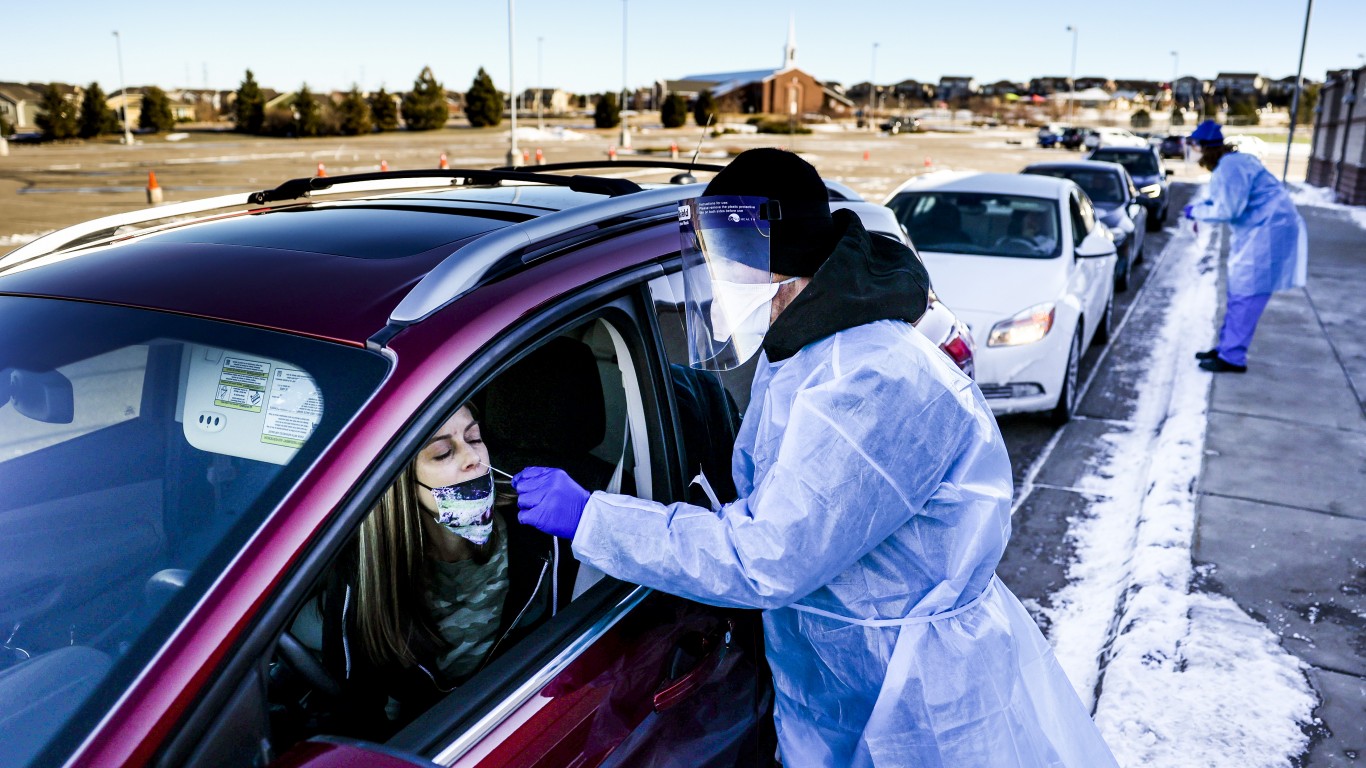

The battle to essentially end the COVID-19 pandemic in the U.S. involves three factors:
Vaccination rates. President Biden wants vaccines available to all American adults by May 1. Vaccination rates have picked up. Some 19% of Americans have been given one or more doses to date, and 10% have been fully vaccinated. Even if enough doses become available and distribution functions smoothly, however, a significant proportion of the population — at least a quarter, if not more — has thus far indicated that they will refuse to get the shots. These are the states where the most people are refusing the vaccine.
The rise of variants. These may prove to be more dangerous than the COVID-19 strain that began infecting Americans as early as last January.
The rapid “reopening” of some states, like Texas, where mask and social gathering mandates have been dropped. Public officials worry about a fourth surge of the disease if Americans are careless.
There’s good news and bad news about the status of COVID-19 in the U.S. As of today, the country has recorded 29,506,986 confirmed cases. Cases were increasing by as many as 225,000 a day two months ago; they’ve dropped below 100,000 most days recently. Fatalities now number 535,758. At their worst, they rose by over 4,000 a day, but the number presently runs closer to 1,000. Nevertheless, American confirmed cases represent a staggering 25% of the global total, and deaths are about 20% of the world’s number.
Variants of the original virus are also increasingly worrisome. The New York Times recently estimated that variants are responsible for as many as 20% of all new confirmed cases every day. The CDC tracks many of the variants — particularly those identified as B.1.1.7, B.1.351, and P.1, but scientists say there are likely more than these three.
One of America’s largest cities has raised an alarm about how quickly variants have begun to spread within its borders.
Click here to see the city that 80% of water has dangerous variants, medical officer says.

Variants in sewage water
Officials in Houston are extremely worried by the rapid proliferation of the B.1.1.7 variant, first identified in the United Kingdom, as indicated by its presence in Houston sewer water. Dr. David Persse, Houston’s chief medical officer, said “The prevalence of the UK variant in our wastewater shows it’s actively spreading in our city.”
[in-text-ad]

How widely can variants spread, and how fast?
According to the Daily Mail, “A new analysis from February 22 found traces of the highly contagious UK variant in 79% of Houston’s wastewater treatment plants, or 31 out of 39.This is an increase from February 8, when the variant was found in samples from 21 of the plants, about 47%.” The two-week surge shows how rapidly a variant can become the primary version, as it did in the UK around Christmastime. Almost immediately after it started spreading there, it was found in the United States.

New York has problems, too
The COVID-19 variant situation in New York City is not very different from Houston’s. The Wall Street Journal reports “An estimated half of current Covid-19 cases in New York City have been linked to variants first identified in New York City and the UK, indicating that new variants continue to spread, health officials said.” While the UK version has been detected in significant numbers nationwide, the other versions haven’t yet become widespread.

There are variants in all 50 states
The CDC has found at least some instances of the three variants in all 50 states. “The US COVID-19 Cases Caused by Variants” posted by the CDC shows only 4,000 reported cases of all three in total around the country — most of those the UK version — but these numbers are almost certainly low. Other data put case counts for variants in the tens if not hundreds of thousands.
[in-text-ad-2]

Can vaccines defeat the variants?
There are two schools of thought about variants and vaccines. The first is that some variants are vaccine-resistant. The Wall Street Journal reports that researchers at Moderna Inc., Novavax Inc., and the University of Oxford are designing the shots, known as multivalent vaccines, to protect not only against the form of the virus commonly circulating globally but also potentially contagious strains that have emerged or might in the future. On the other hand, Science reports that current vaccines may not be entirely effective against all variants that have been discovered in America.
Houston has a problem. So does much of the rest of the country. It is too early to tell whether the problem will worsen or eventually be solved.
Sponsored: Attention Savvy Investors: Speak to 3 Financial Experts – FREE
Ever wanted an extra set of eyes on an investment you’re considering? Now you can speak with up to 3 financial experts in your area for FREE. By simply
clicking here you can begin to match with financial professionals who can help guide you through the financial decisions you’re making. And the best part? The first conversation with them is free.
Click here to match with up to 3 financial pros who would be excited to help you make financial decisions.
Thank you for reading! Have some feedback for us?
Contact the 24/7 Wall St. editorial team.



